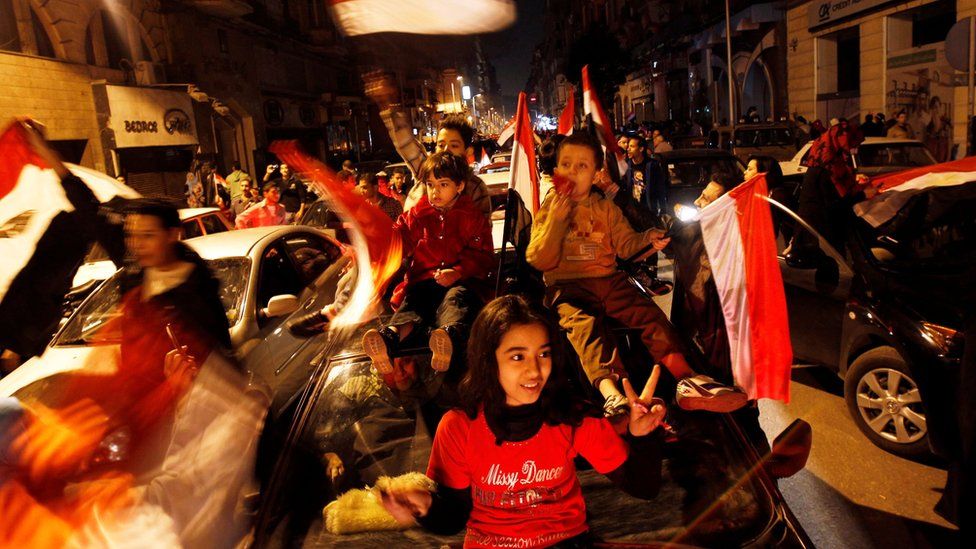
A single moment in Cairo 10 years ago made me think: "Wait, this is more than just another protest." It was a Friday, when the most important weekly congregational prayer for Muslims takes place, and it came a few days after the first demonstrations against Egyptian President Hosni Mubarak had started.
Mohamed ElBaradei, who won the Nobel Peace Prize for working to stop the spread of nuclear weapons, had emerged as critic of the regime. When he went to a mosque that Friday, everyone there expected trouble, even though Mr ElBaradei himself always urged peaceful protest. Hundreds of riot police were ready. Several thousand demonstrators were waiting.
I was a little cynical about opposition to the President. I had seen a few demonstrations in the years before that, of brave, generally middle class protestors, who would chant slogans for as long as it took for the police to arrest them, usually violently.
When the prayer ended that day, the demonstrators turned on the police.
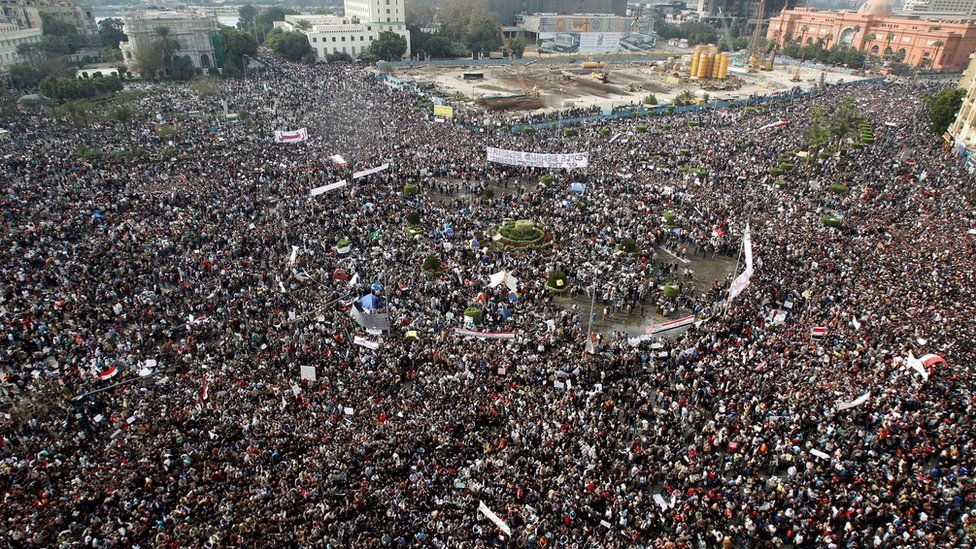
The moment I realised it was different was when I saw it was not the educated middle class who were protesting but desperately poor Egyptian men. They turned over police vehicles, setting them alight and taking on clubs and tear gas. Revolutions have no strength without the urban poor.
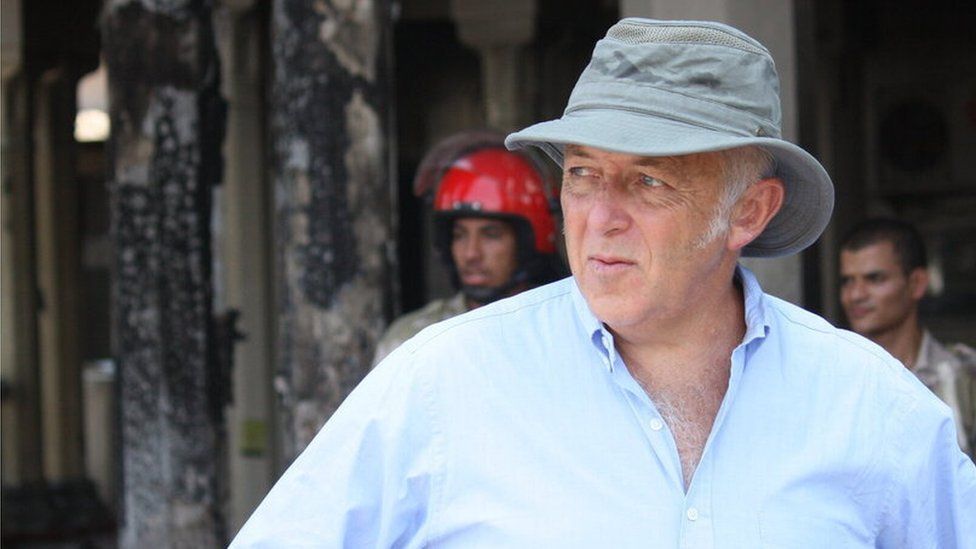
It was a day of pitched street battles that culminated with crowds storming bridges across the Nile that led to Tahrir Square, the symbolic heart of the city.
When Hosni Mubarak fell, exactly 10 years ago, the news roared across the crowds in the square who had by then fought off his supporters for 18 days. During the night the noise of clashes in and around the square rose over the silence of the curfew imposed by the regime. On one bizarre and violent day there was even a cavalry charge against the protestors by men on camels.
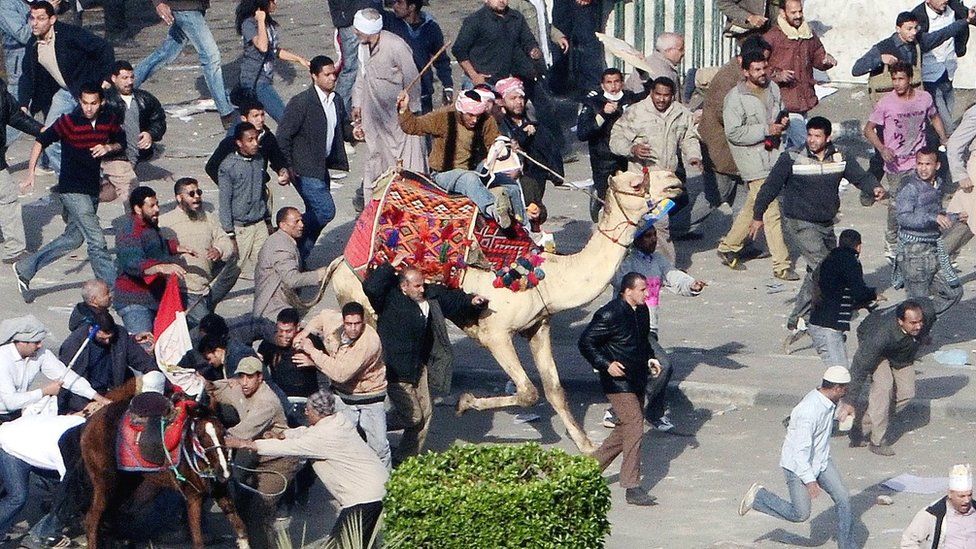
The revolution had no real leaders, which made it feel popular and democratic. That was also its downfall. The young people who had become prominent in the protests could not find a way to organise themselves into an effective political force. It was understandable. Years of authoritarian rule meant they were starting from scratch.
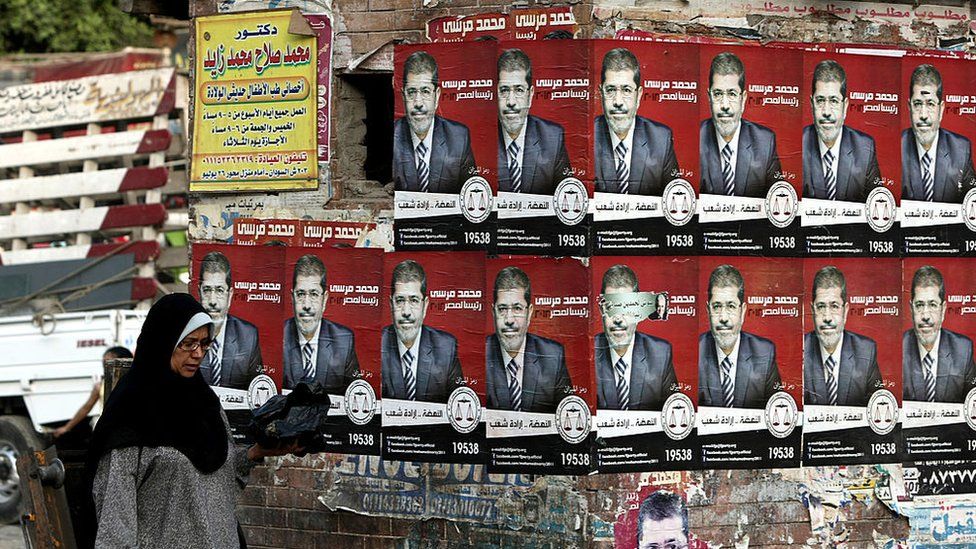
A free presidential election in 2012 came down to a fight between the candidates fielded by Egypt's two organised groups. On one side was the Muslim Brotherhood who had been working since the 1920s for a state based on the laws of Islam. They believed their moment, finally, had come.
On the other was the Egyptian military, which had controlled Egypt since a group calling itself the Free Officers overthrew the monarch in 1952. Mubarak was a former air force chief, who was sacrificed by the armed forces to preserve their power, which in Egypt extends to the lucrative control of large sections of the economy.
The Muslim Brotherhood won the election, but governed badly and rapidly alienated Egyptians who were not their natural supporters. The military did all they could to undermine the government. As Egypt sank deeper into instability and violence, the generals seized power in 2013.
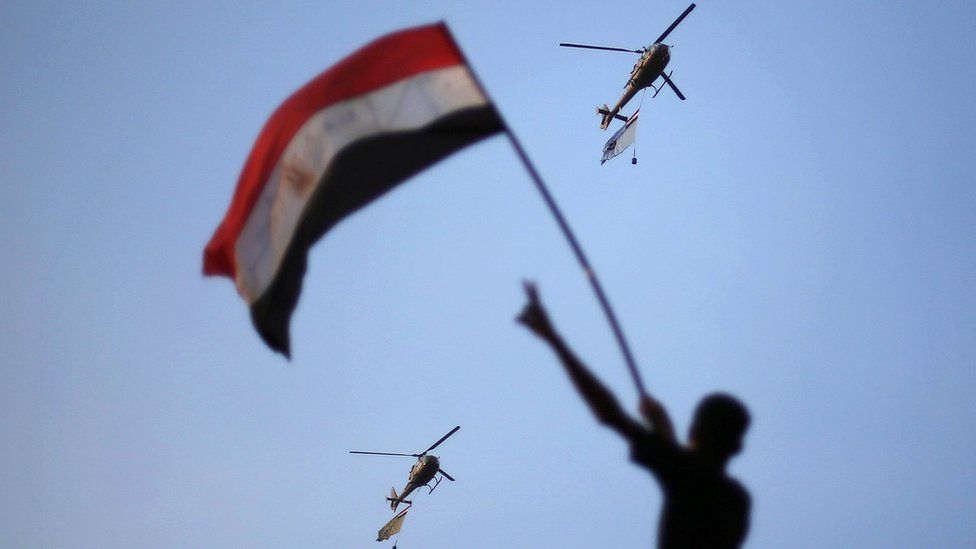
By the beginning of 2014 more than two thousand people, mostly civilians, are estimated to have been killed in political violence on the streets. I saw much of it: security forces levelling their weapons and directing deadly fire at a big and angry crowd outside the base where the deposed president, Mohammed Morsi, was being held; families trying to identify bodies laid out in a mosque and decomposing rapidly in the August heat after security forces killed at least 900 people as they broke up sit-ins by supporters of the Brotherhood; the dead from a huge demonstration in Ramses Square being sewn into burial shrouds at another mosque where the staircases were slippery with blood.
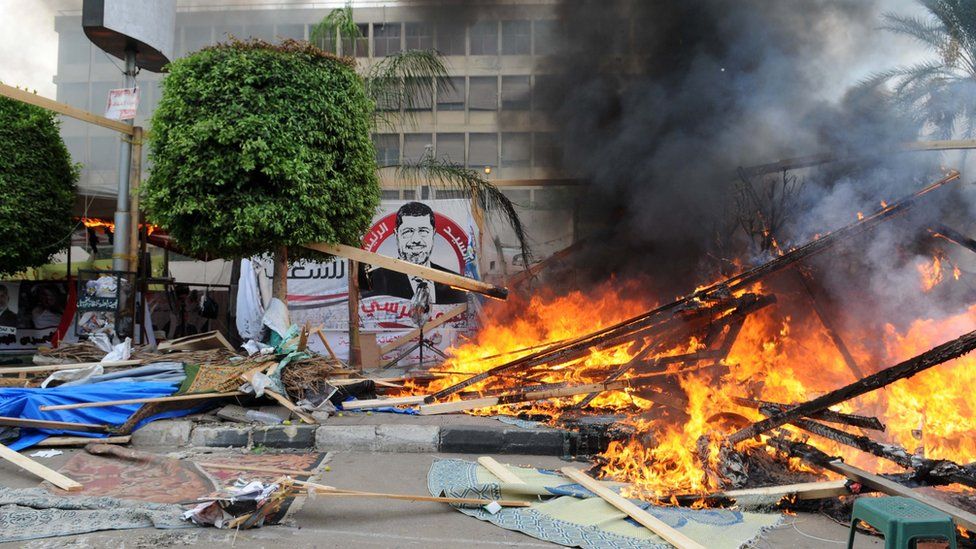
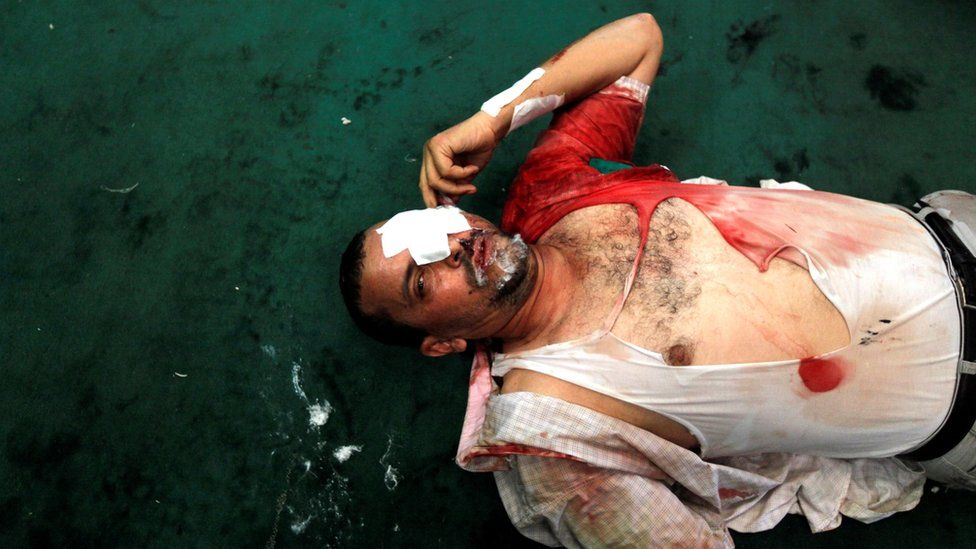
Since then the armed forces have consolidated their control of Egypt. Their leader, Field Marshal Abdul Fattah al-Sisi, became president. He has imposed a more comprehensive and vicious police state than anything attempted in Mubarak's era. Tens of thousands of Egyptians have been thrown into jail for everything from direct opposition to the regime to simply ridiculing the president. Hundreds have been executed after trials condemned as unfair by human rights groups.
The dethroning of Hosni Mubarak followed a popular revolution days earlier in Tunisia. The events at the start of 2011 in Egypt, traditionally the cultural and political hub of the Arab world, had within weeks inspired uprisings across the Middle East.
The uprisings changed everything, but not in the way that protestors chanting for freedom and the fall of the regimes had been hoping.
The hard men struck back. Hundreds of thousands have died and millions have lost their homes. Jihadist extremists prospered, providing their own version of the truth to young people oppressed by dictatorships fighting for their own survival.
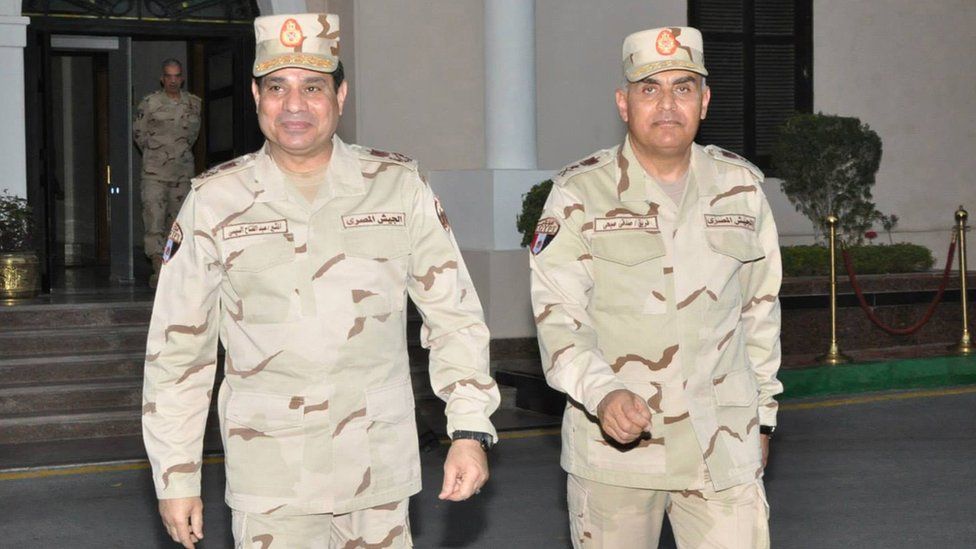
Removing entrenched authoritarian leaders is very difficult, particularly when regimes are supported by foreign powers that believe they make reliable allies.
The regime in Egypt would have struggled to survive without financial help from Saudi Arabia and the United Arab Emirates. President Sisi has also had vital political support from the west.
In Paris last December President Emmanuel Macron of France decorated the former field marshal with the Grand Cross of the Legion of Honour.
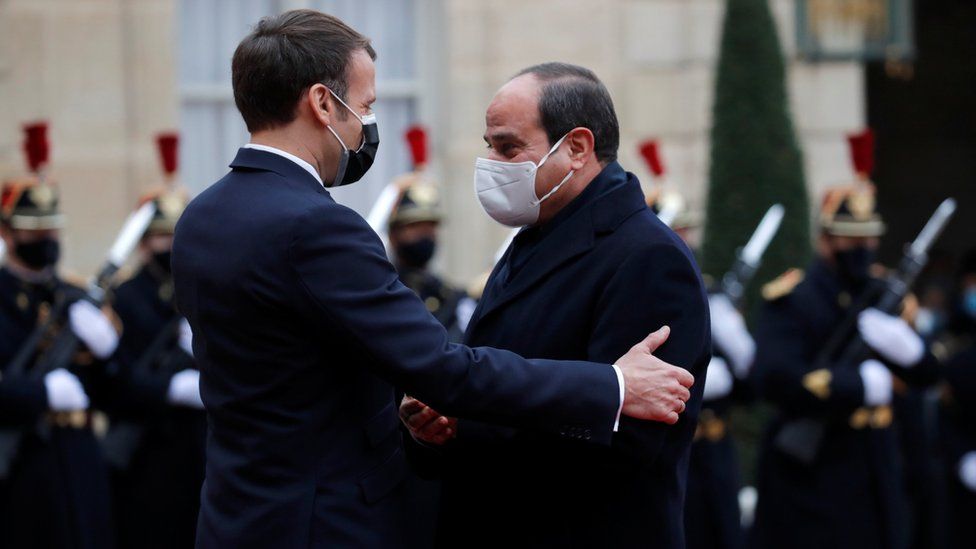
The veteran Egyptian human rights campaigner, Laila Soueif, who has two children currently in jail for opposing the Sisi regime, told me in a Zoom interview that Western governments needed to change their ways.
"I know that Western politicians are selling their people the line that they have to back the regime in Egypt and similar regimes around the area, because this is the only way to achieve the stability. And if you do not actually have stability, you will have millions of immigrants and you will have terrorism blah blah blah..."
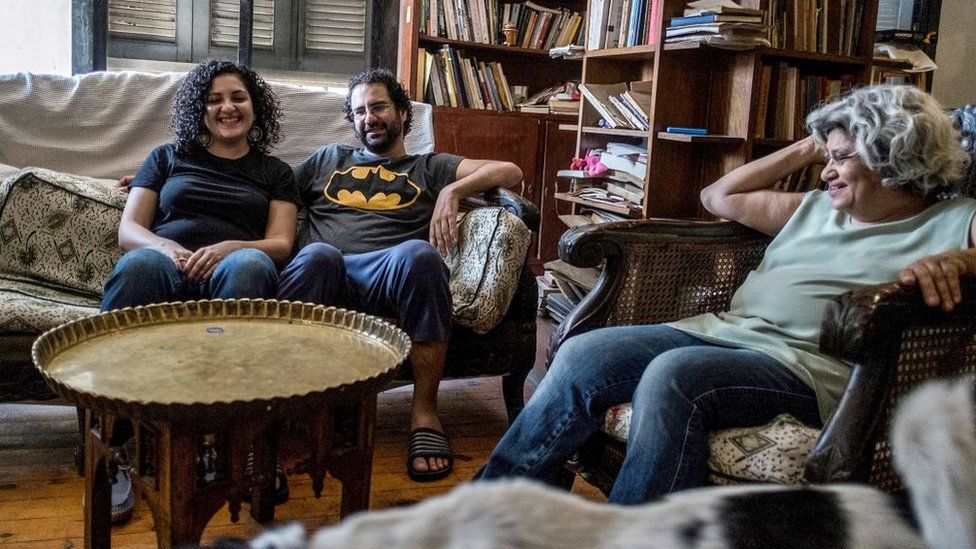
"Now this is their alibi. It's not true... British people should hold the government accountable for what it's doing or selling or how it's working for the benefit of arms and energy companies rather than people."
While regimes have held on to power they have not restored stability, or consent. The Middle East is in a long and difficult process of change.
The 2011 uprisings were fuelled by the anger of young people who were fed up with corruption, repression and unemployment. All those grievances still exist. More under-30s in Arab countries are jobless than anywhere else in the world.
Anger smoulders across the Middle East. Already this year, there were big protests against mass unemployment in Tunisia, the only Arab country to emerge from 2011 with a new democracy. Demonstrators attacked public buildings in Lebanon, a country that is in economic and political collapse.
The attitudes of the young matter, because they make up the majority of the population. The impact of the Covid-19 pandemic will amplify everything.
The hopes of decade ago were crushed.
History shows that repression works, until desperation overcomes fear, and then it doesn't.
"still" - Google News
February 12, 2021 at 07:06AM
https://ift.tt/2ZmtRIh
Arab Spring: How the uprisings still echo, 10 years on - BBC News
"still" - Google News
https://ift.tt/35pEmfO
https://ift.tt/2YsogAP
Bagikan Berita Ini















0 Response to "Arab Spring: How the uprisings still echo, 10 years on - BBC News"
Post a Comment